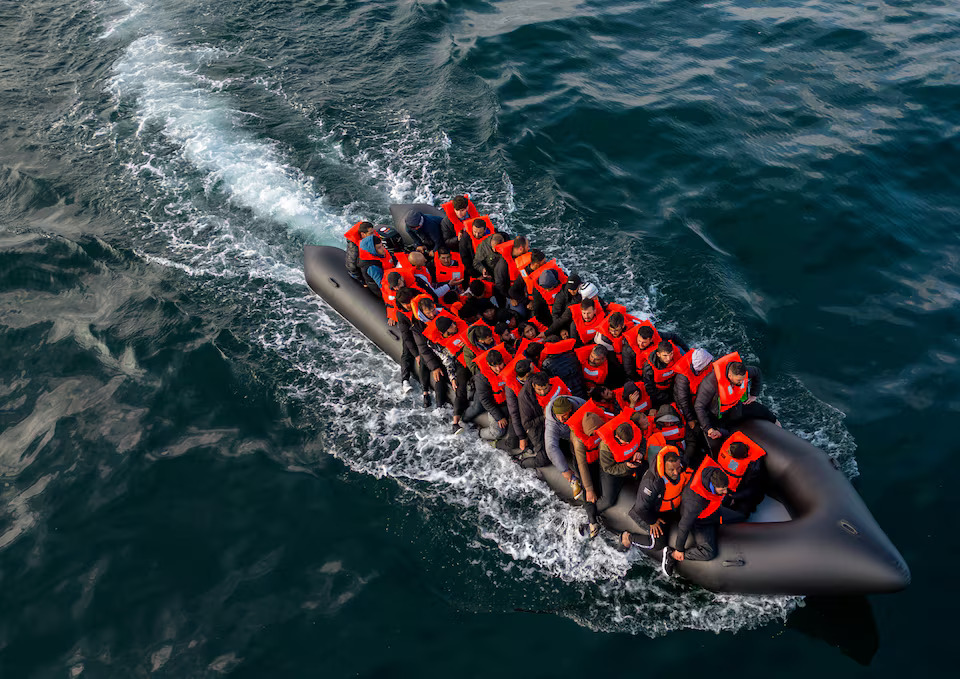France has now agreed to begin stopping small migrant boats at sea after months of delays, following a rise in Channel crossings. The plan comes after heavy criticism and is expected to be ready before President Emmanuel Macron visits London for a Franco-British summit on July 8.
The French government is preparing to strengthen its navy with new patrol boats. These vessels would aim to intercept “taxi boats” that usually carry migrants from French beaches to the UK. This move comes after images showed French police watching smugglers pick up migrants without stopping them.
Over 1,000 people crossed the English Channel in small boats last Saturday alone. Photos from Gravelines, near Calais, showed migrants boarding dinghies while police stood by and later escorted the vessels out to sea.
UK Defence Secretary John Healey criticised the French response, saying the UK had “lost control of its borders.” He stressed that although the UK and France had agreed on joint action earlier, France had not yet enforced the rules.
Healey explained that the two countries now have stronger cooperation, and the UK is pushing France to act quickly. He said the agreement includes changes in French procedures that would let them stop smugglers and migrants before they leave French shores.
UK Home Secretary Yvette Cooper also urged France to begin sea interceptions urgently. Her demand followed reports that a record 1,195 migrants arrived in 19 boats on Saturday, bringing this year’s total to 14,812 — the highest ever recorded.
A French interior ministry official confirmed to The Telegraph that they’re planning a new strategy. Currently, France only intervenes to rescue boats already at sea due to legal concerns. But now they aim to change this by operating closer to the shore, within 300 meters, while still following international law under the Montego Bay Convention.
The French government hopes to finish this new strategy before the July summit. A special committee has already asked the General Secretariat for the Sea to lead the plan, and they aim to create “shared guidelines” for future operations between both countries.
This move is part of a £480 million deal between the UK and France to curb illegal Channel crossings and improve border security cooperation.

